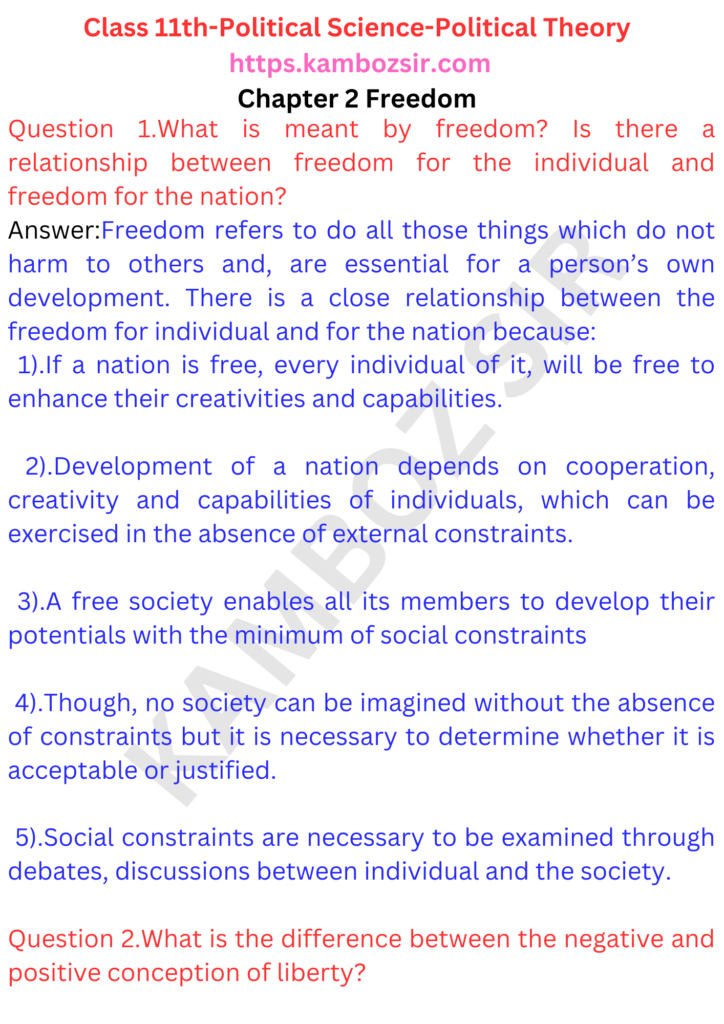Class 11th Political Science Chapter 2 Freedom Solution
Class 11th Political Science Chapter 2 Freedom Solution
In Chapter 2 of Class 11th Political Science, we delve into the concept of freedom and its significance in political theory and practice. Freedom is a fundamental value that lies at the heart of democratic societies, and understanding its various dimensions and debates is crucial for comprehending the complexities of political systems.
We begin by exploring the concept of freedom and its relationship to power. We examine different conceptions of freedom, such as negative and positive freedom, and consider how they shape our understanding of individual and collective liberties. We discuss the tension between freedom and authority, and the ways in which political institutions and laws can either safeguard or restrict individual freedoms.
Next, we delve into the philosophical foundations of freedom. We study the ideas of influential thinkers such as John Locke, Jean-Jacques Rousseau, and John Stuart Mill, who have provided significant contributions to our understanding of freedom. We analyze their theories and explore their perspectives on the limits of freedom, the role of the state in protecting individual liberties, and the relationship between freedom and equality.



